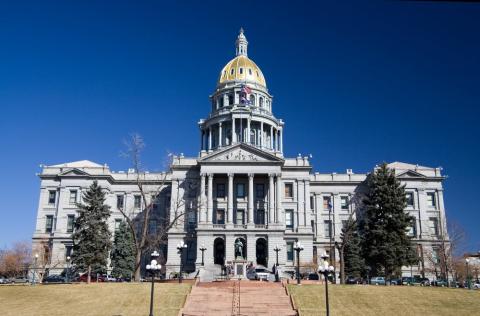The time for independent leaders to change our political system for the better is here.
Dissatisfaction with dysfunctional governance is at an all-time high in Colorado, and voters are leaving both major parties in record numbers. According to a recent report by the Centrist Project Institute, 53% of voters believe both parties are not working together well to solve problems facing Colorado, and 85% of voters say they are open to supporting independent candidates.That statistic speaks volumes, but the question for voters inevitably becomes, “If I do support an independent candidate, will they be able to get anything done once elected?”
In 2018, there will be independent candidates on the ballot in Colorado and the answer is “yes” –– if you elect an independent, they can serve effectively.
In 2009, while I was starting my sixth year as a state representative, I left the Democratic Party and registered as an unaffiliated voter so that I could better represent my district.
My one year serving as an unaffiliated member of the State House taught me that you can serve effectively outside the party structure. The notion that independent elected officials won’t be able to accomplish anything is a myth perpetuated by party insiders to discourage voters from supporting independent candidates.
It just isn’t true.
Good representation is about commitment to the needs of the people that elected you, regardless of party. It is about being honorable, running solid legislation, and being accountable to the people at home.
When I served as an independent, I did not caucus with either party. I used the time I otherwise would spend listening to party insiders talk political strategy in caucus meetings to actually read the bills on my own and call my constituents to get their opinions.
All members of the legislature are entitled to run five bills, and sit on two committees. These rights are guaranteed for legislators in Colorado.
The key to success, regardless of party affiliation, is to craft good legislation that the other members want to support. Being willing to compromise, listen, and develop solid policy is what it takes, and that’s what being an independent is all about.
It is true that party leadership is not likely to appoint an independent as chair of a committee, and the leadership probably won’t grant an independent any extra favors or support. But most of the people that are serving in the legislature are good people that want to do the right thing for the citizens they represent.
If legislators vote “no” on bills because the sponsor isn’t a member of their party, they have to explain that to the voters at home – many of whom are also independents (and that may make for some tough town halls).
Often times, the independent member’s vote is the most sought after by both sides.
Why?
On one hand, the independent's vote can’t be taken for granted by either party, and it can be used to demonstrate broad support for legislation.
And, on the other hand, party leaders try to give their members that come from competitive districts a “pass” on controversial legislation; so the leadership courts the independent to bail them out of having to vote a certain way.
This is real leverage an independent can use to improve public policy in the interest of all the people.
Although it likely cost me my next election when the party bosses sought to reclaim their seat by moving me out of my district in the next round of redistricting, I never regretted switching my affiliation to independent in the legislature.
Being an independent made me a more effective advocate of my entire constituency, gave me greater leverage to impact the legislative process, and provided me a unique opportunity to be a voice for the plurality of voters who are neither Democrats nor Republicans.
This election cycle is going to be different and will provide an even greater chance for independents to make their mark.
The Colorado Centrist Project aims to help elect a slate of independent candidates to the Colorado legislature and provide them the support necessary to run competitive campaigns.
And once these political outsiders get elected to office, they will pave the way for change, and they will serve the people –– not the parties or special interests.
Photo Credit: Andre Nantel / shutterstock.com
